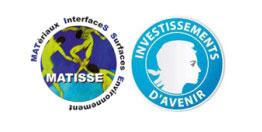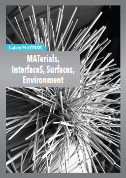New Chemistries Beyond Lithium-ion Batteries

Conférence de Rezan Demir Cakan
Date et lieu
Jeudi 18 juillet 2019 à 11H
Salle 317 - 3e étage - Tour 13-14
Campus Pierre et Marie Curie
Présentation de la conférence
Batteries are electrochemical energy storage devices which are used in many applications ranging from mobile to stationary applications and requiring very different energy densities. There are only a few battery technologies commercially relevant from those dominating the market in terms of size and value (Li-ion, Pb/acid and alkaline Ni based either Ni/Cd or Ni/MH). Among those, Li-ion battery (LIBs) systems have been extensively exploited last two decades. However, as the use of large format Li batteries becomes widespread, the cost of Li raw material has roughly doubled from the first application in 1991 to present. Therefore, more drastic approaches are necessary to go beyond this limit.
One option is to replace lithium with sodium. Based on the wide availability, nontoxicity and low cost of sodium, ambient temperature sodium-ion batteries (NIBs) have the potential for meeting large-scale grid energy storage needs. NIBs have a working mechanism similar to that of LIBs. However, the difference in the ionic radii between sodium and lithium leads to changes in the thermodynamic and kinetic properties, which might be advantageous or disadvantageous with respect to a reversible cell reaction. Since sodium-ion batteries are an emerging technology, the discovery of new materials to enable Na electrochemistry and the fundamental understandings have been relatively lacking. Thus, the development of new electrode materials and investigation of their working mechanism by different in-situ/ex-situ characterization tools will be concentrated.
Another approach is to switch back to aqueous electrolyte system. Water is considered as universal solvent and can dissolve large concentrations of diverse ionic compounds. Its high dielectric constant and low viscosity (80 and 1cP respectively at 20°C) enable a very high ionic conductivity for aqueous electrolytes, which is two orders of magnitude higher than that achieved with the organic electrolytes used in Li-ion batteries. From the univalent to multivalent cation chemistries namely Li/Na-ion to Zn-ion technologies providing in-depth description of their reaction mechanisms by probing different characterization tools as well as covering common technological challenging issues will be explained during the course of this seminar.
Short Biography of Rezan Demir-Cakan
Rezan Demir-Cakan completed her bachelor and master degree from Yildiz Technical University at the Chemical Engineering Department. She received her Ph.D. degree at the Max Planck Institute of Colloids and Interfaces Interfaces, in Germany (2009), under the supervison of Markus Antonietti working on the synthesis, characterization and applications of hydrothermal carbon materials. Then she moved to France, the group of Jean-Marie-Tarascon, focusing on the rechargeable lithium batteries, more specifically on lithium-sulphur batteries between 2009-2012. Currently she has been working as an Associate Professor at the Chemical Engineering Department of Gebze Technical University. Her research interests include the synthesis of nanostructured energy materials and their application in the field of Li/Na batteries.
Egalement dans la rubrique
MATISSE en chiffres
- 4 disciplines : Chimie, Physique, Sciences de la Terre, Patrimoine
- 400 permanents
Contact
Direction
Florence Babonneau
Administration
Communication
Emmanuel Sautjeau



